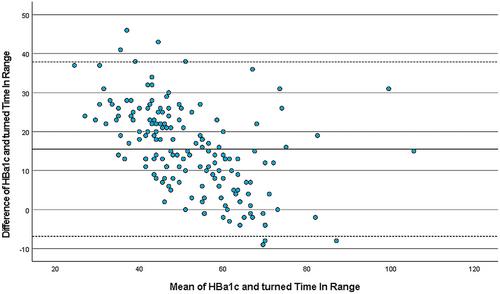Sociodemographic factors affecting glycaemic control in Finnish paediatric patients with type 1 diabetes
Abstract
Aims
Socioeconomic problems may present significant challenges when trying to reach optimal glycaemic control in paediatric patients with type 1 diabetes. We examined sociodemographic factors affecting metabolic control in patients in one of the biggest paediatric diabetes clinics in Finland.
Methods
One hundred ninety-one children (age 2–15 years; median 11 years; 47% female) with type 1 diabetes and their families were recruited during outpatient visits in the paediatric diabetes clinic of Tampere University Hospital, Finland. The participants completed a questionnaire on the family's sociodemographic background. The child's glycaemic control was assessed by both glycosylated haemoglobin (HbA1c) and time in range (TIR). Risk factors for poor (HbA1c ≥75 mmol/mol; TIR <40%) and optimal (HbA1c <53 mmol/mol; TIR ≥70%) metabolic control were searched using logistic regression analyses.
Results
Living in a nuclear family, male gender, younger age and a school assistant for diabetes management were associated with the simultaneous presence of both indicators of optimal metabolic control. Poor glycaemic control, as estimated by HbA1c, was associated with lower parental education and the child's older age. Parental smoking and the child's older age were associated with poor TIR.
Conclusion
This study confirms the importance of sociodemographic factors in care of Finnish paediatric patients with type 1 diabetes. Sociodemographic status markers of the family could be used as triggers to alert paediatric diabetes teams to offer more tailored care to families with new-onset type 1 diabetes mellitus.


 求助内容:
求助内容: 应助结果提醒方式:
应助结果提醒方式:


